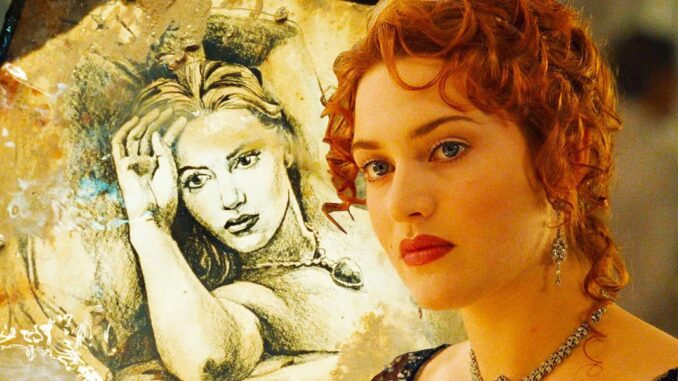
The Ghost of Inspiration: Who Inspired the Beautiful and Progressive Rose in Titanic?
Rose DeWitt Bukater, the fiery, artistic, and ultimately liberated protagonist of James Cameron's Titanic, captivated audiences with her rebellious spirit and rejection of societal constraints. But who, or rather what, inspired this iconic character? While Rose is fictional, woven from threads of historical accounts and imaginative storytelling, her persona is a tapestry stitched with the experiences and ideals of several real-life women, movements, and concepts, all contributing to the creation of a progressive and beautiful character who resonated so deeply.
One significant source of inspiration lies in the stories of real-life passengers aboard the Titanic. Cameron meticulously researched the tragedy, studying survivor accounts and passenger lists. While Rose isn't directly based on a single individual, her circumstances echo those of several women from the upper classes. Like Madeline Astor, the young, pregnant wife of John Jacob Astor IV, Rose is trapped by the expectations of her social standing and burdened by financial woes. Her forced engagement mirrors the arranged marriages that were common among the aristocracy, where wealth and social status often trumped personal happiness. Through Rose, Cameron channels the silent desperation of women who felt confined by their gilded cages, highlighting the suffocating pressures of Edwardian society.
However, Rose is far more than just a victim. She embodies the burgeoning spirit of female emancipation that was sweeping through the Western world at the turn of the century. This brings us to another key source of inspiration: the burgeoning feminist movement. The Edwardian era witnessed significant strides in the fight for women's rights, with suffragettes demanding the right to vote and women entering professions previously dominated by men. Rose’s artistic inclinations, her fascination with modernity, and her yearning for adventure are all indicative of this burgeoning independence. Her desire to break free from the stifling expectations of her class and forge her own path reflects the ideals of the "New Woman," a figure who challenged traditional gender roles and embraced self-reliance and intellectual pursuits. Rose is, in essence, a fictional embodiment of this progressive ideal, a woman who dares to imagine a life beyond the constraints imposed upon her.
Furthermore, Rose’s passion for art and her appreciation for modern masters like Monet and Picasso further solidify her connection to the progressive ideals of the time. Her exposure to these avant-garde movements suggests an openness to new ideas and a rejection of the rigid, traditional aesthetic that dominated the upper class. The art itself serves as a metaphor for Rose's own transformation. Just as these artists challenged conventional norms, Rose seeks to break free from the social constraints that bind her. This aesthetic rebellion mirrors her personal rebellion, highlighting her desire to embrace a life that is vibrant, authentic, and free from the suffocating expectations of her world.
Beyond specific individuals or movements, the very concept of "progress" itself served as an inspiration for Rose's character. The Titanic, touted as unsinkable, embodied the hubris of technological advancement and the misplaced faith in man's ability to control nature. Rose, in contrast, embodies the human spirit's capacity for adaptation and growth in the face of tragedy. Her journey from a repressed young woman to a self-assured survivor reflects the potential for personal progress and the resilience of the human spirit. She emerges from the wreckage a stronger, more independent woman, having learned to value life and embrace the freedom to choose her own destiny.
In conclusion, the beautiful and progressive Rose DeWitt Bukater is not a replica of any single individual but rather a carefully constructed composite, drawing inspiration from the historical realities of the Titanic, the burgeoning feminist movement, the progressive ideals of the Edwardian era, and the very human capacity for growth in the face of adversity. Through her, Cameron created a character who embodies the yearnings of a generation, a woman who dares to dream of a life beyond the confines of her social standing and ultimately finds freedom and fulfillment through embracing the possibility of progress. Rose is a reminder that even in the face of tragedy, the human spirit can endure and that the pursuit of a more just and equitable world remains a worthy aspiration.